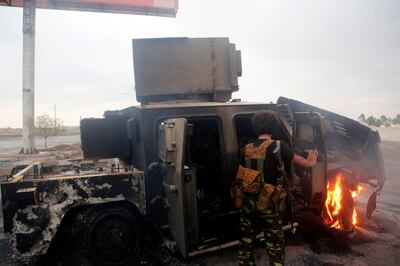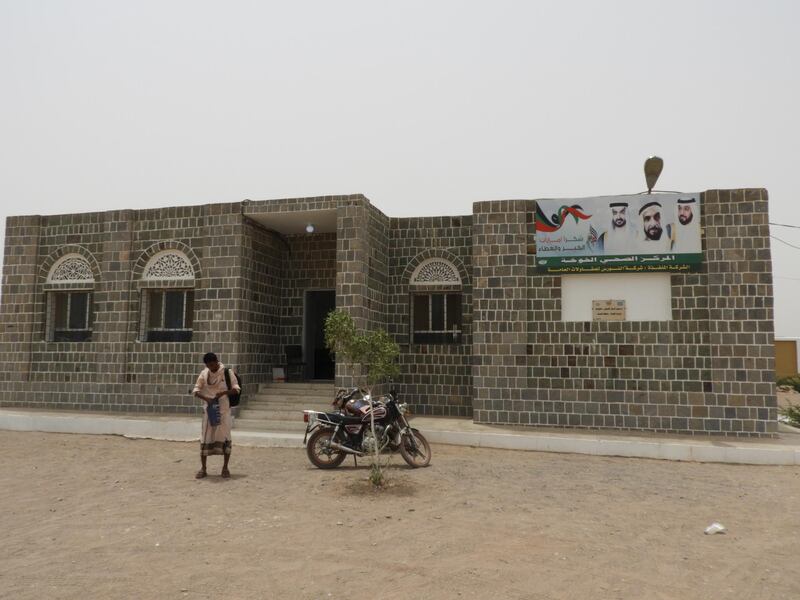Houthi rebels sent home hundreds of patients at clinics and hospitals across Yemen's Hodeidah in recent days and ordered hospital managers to turn away civilians in order to keep beds free for wounded fighters, medical sources told The National.
Managers at clinics in recently liberated areas on the edges of the Red Sea port city, which is under rebel control, said that they had received a large influx of people seeking medical assistance who said they had been turned away from facilities in the city.
Dr Khaled Suhail, the director of Athwarah public hospital in the city of Hodeidah, confirmed that the hospital was receiving a large number of the injured Houthi fighters.
"We have been receiving the injured fighters from Ansar Allah [also known as the Houthis], the citizens couldn't approach the hospital because all the roads are cut," Dr Suhail said.
Yemeni government forces, backed by the Arab-led coalition, have been pushing an offensive on Hodeidah to force rebels out of the key port that is a vital supply line for humanitarian supplies. However, the coalition says that rebels also use the facility to ship weapons into the country.
The offensive was paused at the start of June to give time for UN-led peace talks however the fighting resumed after the Houthi delegation failed to attend the first meeting in two years in Geneva on September 8.
______________
Read more:
Anwar Gargash hails gains against Yemen's Houthi rebels in Hodeidah
Yemen pro-government forces cut major Houthi supply route
Editorial: Regaining Hodeidah could end Yemen war
______________
UN special envoy to Yemen, Martin Griffiths, travelled to Muscat last week to meet with Houthi commanders who failed to attend the talks. Houthi media outlets reported that the delegation discussed the reasons why they did not attend the Geneva talks and laid out what would be needed to agree to fresh discussions. The media reports did not give further details of the substance of the discussions but Hamid Assem, a member of the Houthi delegation, told AFP on Friday there had been no breakthrough.
"There has not been progress regarding the discussions while we have not received the guarantees," he said by phone.
Meanwhile, UAE Minister of State for Foreign Affairs Dr Anwar Gargash said on Friday that the Houthis were nearly surrounded in Hodeidah and suffering from low morale after recent heavy losses.

"Ongoing operations in Hodeidah are achieving their goals. The Houthis' morale is at its lowest with huge losses in their ranks as the siege around them is drawing towards completion," Dr Gargash wrote on Twitter.
On the ground in Hodeidah, Houthi commanders withdrew combat vehicles and fighters from areas around Kilo 16 and Kous Al Naser east of Hodeidah where there have been fierce clashes with government forces. Kilo 16, an area that runs along the road towards the occupied capital of Sanaa, has been the epicentre of bloody fighting through the week as government forces sought to cut off the crucial Houthi supply line.
Yemeni Information Minister Moammar Al Eryani said the rebels had hidden fighters and hardware in food warehouses used by the international organisations to store humanitarian supplies.
“It is contrary to international law which states that international relief facilities should not be used as places of conflict and fighting”, the minister said in a tweet.





